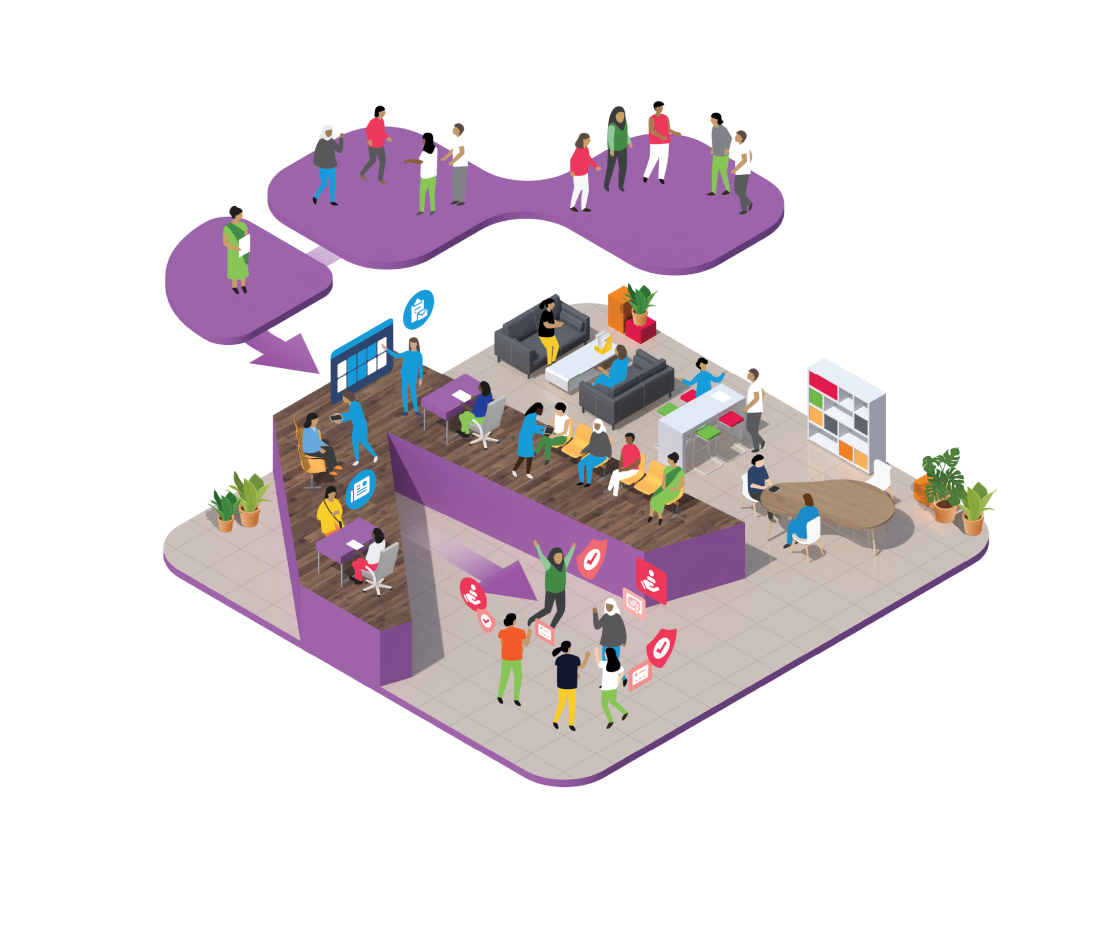Just a decade ago, behavioural science was in its infancy. Today, it is a well-established discipline that many institutions are integrating into policies and programmes.
People do not always behave in predictable ways and human behaviour is often shaped by a variety of factors, including biases and mental shortcuts. If United Nations entities strengthen their behavioural science capabilities, we can increase the impact of our strategies and tailor our initiatives better to contexts.


There are millions of individuals who fail to access social protections to which they are entitled. With stronger behavioural science expertise, United Nations entities, for example, can support Member States in simplifying registration procedures, improving outreach, facilitating automatic enrolment, improving the completion of tasks, tailoring processes to local realities and building trust – to achieve shock-responsive and universal social protection.


Nurturing behavioural science capacity is about building our knowledge of how people act, make decisions and react to policies, processes and incentives, in order to create better choices and positive change.
As a multidisciplinary field, it combines methods from psychology, economics, communications, data science, sociology and other fields to craft strategies that work with – not against – the grain of human nature.
“Behavioural science helps us to diagnose how and why people do the things they do, which can be crucial for designing more effective programmes and policies, improving our internal operations, and reducing bureaucracy.”

The Guidance Note is an introduction to the practice of behavioural science at the United Nations. It outlines how it can enhance the UN’s mandate delivery, programme implementation and improving its administration.
The UN Behavioural Science Group brings together UN colleagues and observers from governments, academia, civil society and more. The Group hosts knowledge-sharing events and provides practical guidance.
How UN leadership, colleagues and youth from across the globe are getting inspired by and sparking action around UN 2.0
By harnessing the power of behavioral insights, we can deepen our understanding of the underlying drivers behind radicalization to violence and develop innovative approaches to address them effectively.
By harnessing the power of behavioral insights, we can deepen our understanding of the underlying drivers behind radicalization to violence and develop innovative approaches to address them effectively.
Behavioural science insights are essential for us to define the communications tactics that could inspire change. They are the foundation of our approach and should be the cornerstone of every modern, data-based, impactful communications strategy or campaign.
Behavioural science insights are essential for us to define the communications tactics that could inspire change. They are the foundation of our approach and should be the cornerstone of every modern, data-based, impactful communications strategy or campaign.
My inspiration behind UN 2.0 is the desire to live in a world that is more effective, inclusive, and responsive to the needs and aspirations of people around the world. Incorporating the latest advances in foresight and behavioral sciences can be a more powerful force for positive change, helping to build a more peaceful, equitable, and sustainable world.
My inspiration behind UN 2.0 is the desire to live in a world that is more effective, inclusive, and responsive to the needs and aspirations of people around the world. Incorporating the latest advances in foresight and behavioral sciences can be a more powerful force for positive change, helping to build a more peaceful, equitable, and sustainable world.
UN 2.0 is about leveraging our connections across the globe, with teams and projects active in over 160 countries. Click on the map to learn more.
The location indicators on this map are illustrative and do not necessarily show where entities are based. The depiction and use of boundaries, geographic names and related data shown on maps are not guaranteed to be error free, nor do they imply official endorsement or acceptance by the United Nations.

UNDP Maldives utilized behavioral insights to counteract social and cultural barriers inhibiting girls from pursuing STEM careers. Iterative strategies were developed and tested to stimulate confidence, awareness, and readiness.

An IFAD study revealing behavioral barriers sustaining gender gaps. It provides a fresh perspective and roadmap for women’s economic empowerment, participatory decision-making, and work redistribution.

The Extreme Lives project created short documentaries for at-risk youth in Asia. Using behavioral insights, the films aimed to change perceptions, boost self-control, and foster community connections.

UNDP Sudan and Yemen implemented behavioral insights to enhance interventions against radicalization. Tools like value affirmation improved psychosocial support meeting attendance and prison education program effectiveness.

UNDP runs Behavioural Science applications in country settings around the world. Explore >60 use cases in an interactive dashboard.

UNDP Chile designed an empathetic support system for gender-based violence survivors navigating the judicial process. The strategy reduced drop-out rates by providing better information and expectation management.

Why behavioral change matters to the Global Environment Facility and what to do about it

Serving as a global platform, the Hub fosters collaboration for behavioural insights in counter-terrorism, driving impactful capacity-building, enabling synergistic programming, and promoting strategic partnerships.

Practitioner’s Guide to Getting Started with Behavioural Science: Applications to UN Policies, Programmes and Administration

The Secretary-General’s Guidance urges all colleagues to explore and apply behavioural science in programmatic and administrative areas and collaborate to realise its tremendous potential for impact towards the SDGs.

The Lightning Talks held at the 2023 Global Aviation Gender Summit focused on the key role of data in making informed decisions and developing inclusive solutions to resource planning and sustainable growth of aviation, including evidence-based strategies, policies and measures that correspond to the priorities, gaps and needs of the sector in achieving gender equality. They also explored opportunities for advancing gender equality in aviation through innovative approaches, such as the application of behavioural science into the recruitment process, so as to limit as much as possible cognitive bias, including those related to gender.

Behavioural Science has the potential to support the contribution of international civil aviation to sustainable development. Positive impacts are foreseen in applying behavioural science to promote safety, encourage environmentally friendly behaviours, or in the area of aviation security. Watch the recording of this webinar to be introduced to key concepts of Behavioural Science and practical applications in aviation.
Offer more programmes informed by behavioural insights and assist Member States to integrate behavioural science into public policy and administration.
Learn along real use cases that create immediate value for those we serve and cultivate a broad set of behavioural science methods across the UN, while employing them responsibly.
Empower teams with access to tools, training and centres of excellence, engage all UN leadership, design new job profiles, leverage technology, and align governance and metrics.
We use cookies and other identifiers to help improve your online experience. By using our website, you agree to this. To learn more, including how to change our settings, see our cookie policy.